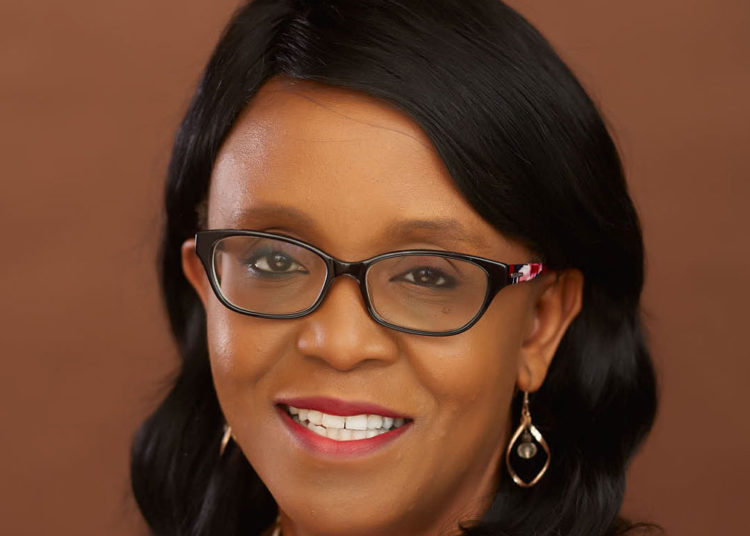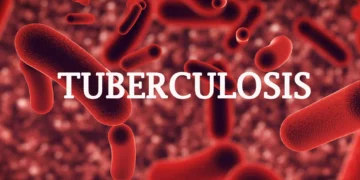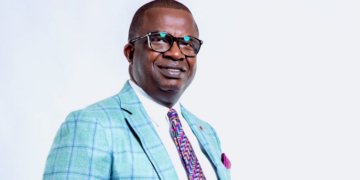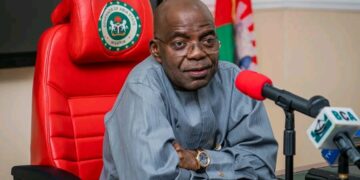The COVID-19 pandemic showed us how unequipped and underfunded the Nigerian health care system is, as a revered medical professional, can you tell us quick steps needed to get Nigeria prepared for possible future pandemics?
When the COVID-19 happened, the NCDC has started working on their plans which includes training of their staff and ensuring that capacity was being built so some of the staff went through training by the Africa CDC and preparing them to test people in the eventuality of COVID-19.
The reality is that the lab infrastructure was not in place and this is historical because Nigeria has never previously invested in health security. We have not been building laboratories since the cases of outbreaks of meningitis and Ebola that was part of the gap that was identified, so Infrastructurally, the country was not as prepared as it should have been, funding mechanism was not in place because we were not funded in not just health but health security.
For Nigeria to tackle future pandemics, there are a couple of things that I would like to mention primarily that would enable us have a future response. The first is financing and funding, we need to have a flexible funding in the states, so states need to take up their own state responsibility and that funding is critical 1. to build responses for health; we have spoken about migration of health workers out of the country, that has its challenges because without health workers we can’t be able to combat these
outbreaks, so funding needs to be available to support the capacity of health workers.
Secondly is infrastructure, primary health care is the foundation of health access in any country, unless we strengthen primary healthcare we are not going to support not just epidemics, basic disease responses but nutrition, immunisation, etc.
These are what the Nigerian Government needs to invest in ensuring that states take responsibility and their response mechanisms are in place to strengthen PHC and other health issues to show that when we next have an outbreak, we are better prepared and to know that Nigeria is already dealing with lots of these diseases, so the preparedness of Nigeria has got to be constant, we are never free from any of these diseases.
Knowing that we have so many thriving private institutions led by well meaning Nigerians, what in your perspective is the reason we haven’t seen so much alignment between the health sectors and private institutions?
In terms of alignment between health sector and private sector, one thing we need to be cognizance of is that the private sector has lots of resources and resources is not just financial but in terms of logistics, capacity, understanding supply chains. They also have the capacity to support the public sector where capacity is missing and I think bringing those two things together, what is lacking or seems to be lacking is trust. The private sector lack that trust such that when those funds are given to the public sector, to make sure that there is accountability mechanism to show that funds are accounted for and used judiciously.
The support that CA-COVID funds provided Nigeria was monumental, it impacted the trajectory of COVID-19 allowance, but what CA-COVID did supporting the government of Nigeria. NCDC was the height of responsibility mechanism in place to ensure that any funds that were needed they work with the Presidential Task Force (PTF) to ensure that they buy vaccines or whatever it was, they were themselves ensuring that they got that work done.
So that trust gap was not an issue because mechanism was in place. so going forward, if the private and public sector are to work together, that trust gap needs to be bridged and that will be helped by having strong mechanism for any funds that is released to the public sector.
Specifically on COVID-19, it seem like another wave is here as the NCDC has revealed a sharp rise of 324 per cent in the number of COVID-19 cases reported in the country within one month. How prepared do you think Nigeria is for this?
One thing we need to know about virus is that they mutate and there is no such thing that they are ever over, yes we are experiencing an upsurge in COVID-19, and in terms of preparedness what needs to happen is that communication needs to continue by reminding Nigeria that COVID-19 is not over whilst many public health measures may have been relaxed, we have to know that we are still at risk.
The people have to ensure that they protect themselves and the communities and get vaccinated since the surest way to protect themselves is to get vaccinated. There are so much that the government can do to get vaccine available but Nigerians also have to take the vaccines.
In relation to protective measures, testing needs to continue, there needs to be mechanism across the state to get tested. Many health protocols have been relaxed so state governments need to ensure that testing facility in the public health Institutions are available for Nigerians if they want to get tested for COVID-19.
There has been a number of conversation and advocacy around investing into the Nigerian health sector, how will you ensure that the call to action from the dialogue forum is executed?
We have a federal system in Nigeria which means that decision making lies with the state government, so health security has to be at the state level through policy dialogue. We want state governors to take action in ensuring their own state security, that add up to the national health security. We talked about the joint external evaluation, which is done at the national level. What it does is that it assess our country’s ability to respond to these outbreaks and also identify those gaps. State level joint evaluation is also as critical because what that does is that it enable the states to know how prepared they are to respond to outbreaks and know where the gaps are and know how to bridge those gaps.
So we really need to push for more state health security to be strengthened because outbreaks starts from remote communities, so it needs to be addressed at the state level before the national response.
Finally, not so much percentage of the Nigerian budget is allocated to the health sector when compared to the western countries, what advice do you have for policy makers and key stakeholders in this regards?
Budgetary allocation to health needs to increase. COVID-19 shut countries down globally, that’s to show that security is not all about guns, boots and army, it is also health security, a virus such as COVID-19 shut down the country, it had a detrimental effect on companies, people, lives were lost. We know that as at today, about 6.2 million people have died of COVID-19 globally, that’s a phenomenal number, a lot of these responses cannot be addressed without budgetary allocation, so the budgetary allocation is not just at the national level, but at the state level to ensure that there is a state budget line item dedicated to health and that funding is always available so that any outbreaks or disease that is identified can be dealt with at the state level because there is constant budget to enable them do their work and budget is not just money but others like logistics, infrastructure, and human resources. So state have to prioritise that funding and health has to be a priority for the government of Nigeria.
Nigerians have to hold their leaders accountable. The local government structure in Nigeria is extremely weak, so if we live in a world and we have poor access to healthcare, we have to hold people accountable because they have to ensure that health is funded and given, primary healthcare is the function of local government so if we have a poorly funded primary healthcare, the local citizens need to collectively raise their voices and demand to their senators. “Why do I not have a Panadol in my local government health center.”





